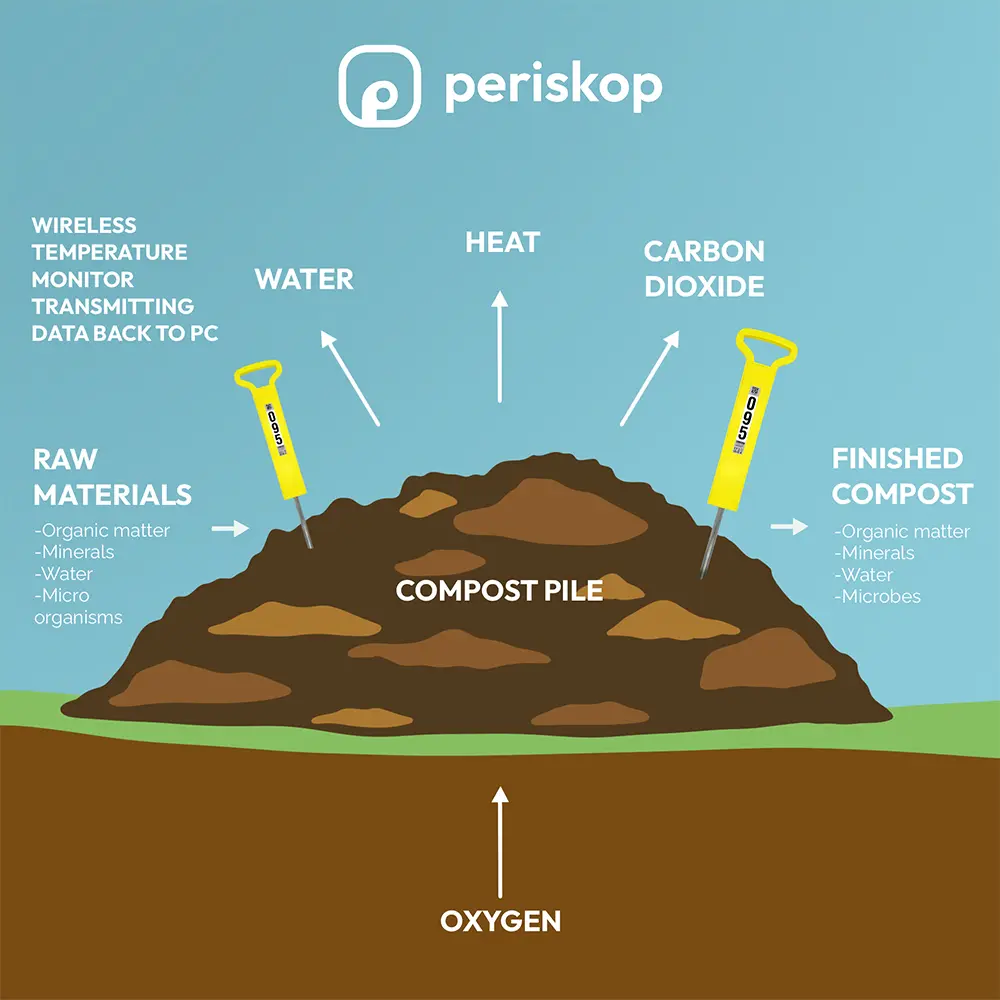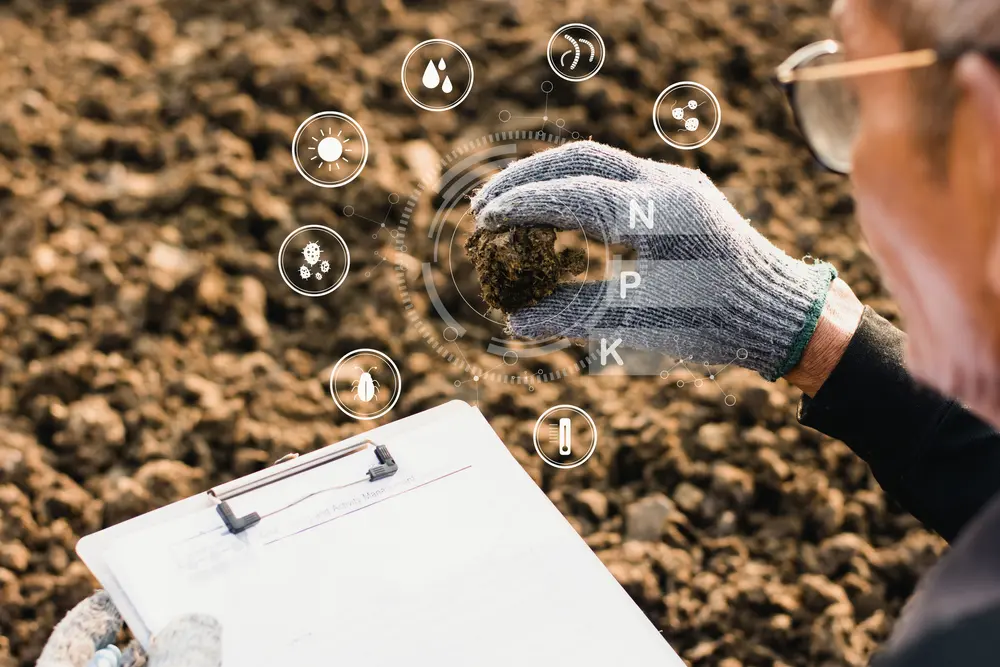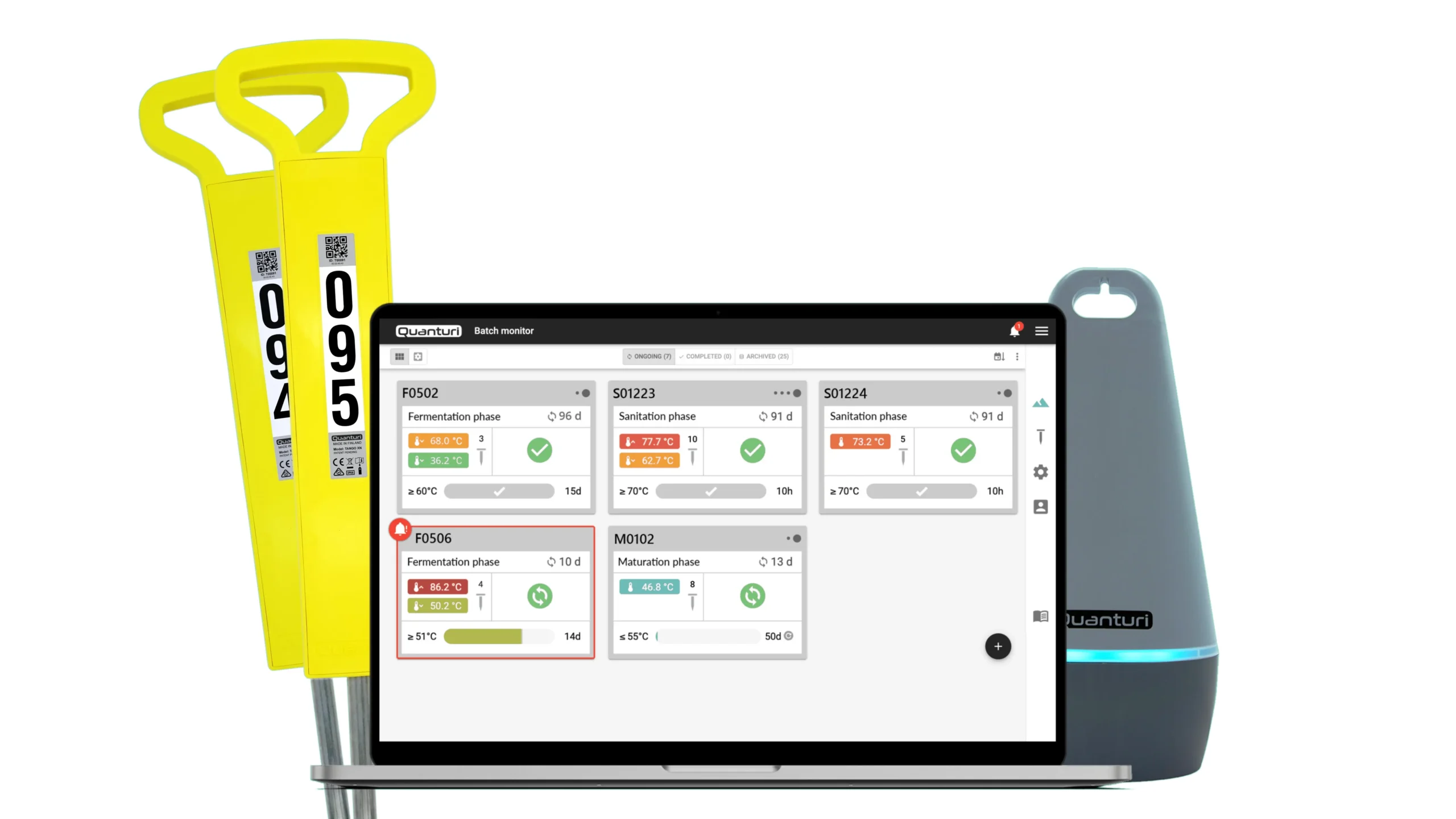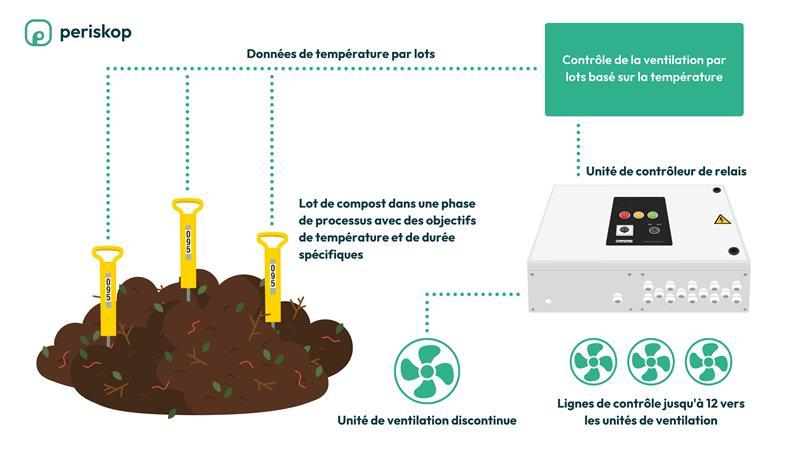Why compost pile temperature monitoring matters?
In today’s world, as we face the ever-increasing challenges of waste management and environmental sustainability, composting has emerged as a powerful solution. It’s not just about turning bio-waste into nutrient-rich soil; it’s about nurturing a relationship with the earth, one that thrives on emotion and science. In this article, we delve into why real-time compost pile temperature monitoring is crucial, exploring its significance in optimizing the microbial activity that scientifically drives the composting process.
What is compost temperature management?
Compost temperature monitoring refers to the art and science of regulating the heat within a compost pile. It’s not just about keeping things warm; it’s about maintaining the ideal conditions for microorganisms to break down organic matter efficiently. This delicate balance of temperature can determine the success of your composting journey. Hence, it is important to monitor compost pile temperature regularly.
The science behind composting process
Composting is a natural process driven by microorganisms like bacteria and fungi. These tiny workers thrive within a compost pile, and their activity generates heat. These workers required high carbon and nitrogen. The carbon and nitrogen work as a catalyst in composting pile. Carbon is required for decomposition or breakdown of organic materials whereas nitrogen is imperative for the growth and reproduction of purposes of these tiny soldiers.
Compost goes through various phases, but the most critical one is the thermophilic phase, where temperature of compost pile rises significantly. This phase is where the magic happens. As per the Cornell Composting Institute, the ideal decomposition range is between 90°F to 140°F (32°C to 60°C). Below 90°F (32°C), the decomposition process slows considerably, while temperatures above 140°F (60°C) are inhospitable for most microorganisms’ survival.
Factors Influencing compost pile temperature
Composition of organic materials
The temperature of compost pile is impacted by the types of materials included in the mix. Maintaining a well-balanced combination of nitrogen-rich greens (such as food scraps) and carbon-rich browns (like leaves) is crucial for effective temperature control. The combination of green and brown components has a direct impact on the activity of microorganisms in the pile, consequently influencing temperature levels and compost management process.
Moisture levels
Sufficient moisture is essential for composting, comparable to the dampness of a wrung-out sponge. Inadequate moisture levels can result in a decrease in temperature of the composting pile, slowing down the decomposition and composting process.
Aeration
Ensuring proper aeration, achieved through regular turning of the compost pile with turner, facilitates the flow of oxygen to microorganisms, fostering higher temperatures within the composting environment.
Size of the compost pile
The size of the compost pile plays a role in heat retention, with larger piles maintaining heat more effectively than smaller ones. Additionally, a larger pile sustains the thermophilic phase for an extended period. In addition, turning the compost pile will increase the surface area for rapid decomposition and helps to check the moisture in the compost pile.
Benefits of proper temperature management in composting
Pathogen elimination
Effective temperature management during composting plays a crucial role in pathogen elimination. Elevated temperatures, particularly during the thermophilic phase, act as a natural sterilization process, effectively killing harmful pathogens present in the organic materials. This results in a final compost product that is safe and suitable for use in gardens, reducing the risk of plant diseases and promoting overall soil health.
Faster decomposition
Maintaining optimal temperatures accelerates the decomposition process within the compost pile. The increased microbial activity at higher temperatures facilitates the breakdown of organic matter, converting it into nutrient-rich compost more rapidly. Faster decomposition not only contributes to efficient waste disposal but also provides a quicker turnaround in producing usable compost for gardening and agricultural purposes.
Nutrient retention
Proper temperature regulation is essential for preserving the nutrient content of the compost. When the composting process occurs at the right temperature, essential nutrients such as nitrogen, phosphorus, and potassium are retained in the final product. This nutrient-rich compost, when added to the soil, enhances its fertility and provides plants with a well-balanced and wholesome diet. All in all, with real-time composting pile temperature monitoring you will be able to turn the pile which will result in quality compost and easy to get government certification.
An Invisible hand in compost temperature management
Temperature monitoring in composting can pose challenges, particularly the risk of spontaneous combustion that can cause fire in composting facility.
Compost pile temperature monitoring
Consistently monitoring the compost temperature with wireless probes is crucial to keep the pile within the optimal range. The manual process of checking and recording readings each time is not only tiresome but also introduces a higher likelihood of errors in calculations. Furthermore, compost piles consistently release hazardous gases that may pose health risks to workers.
Solution
However, with the appropriate tools, such as Periskop, this task becomes not only feasible but also efficient. Periskop stands out as a cloud-based wireless compost temperature monitoring system designed for composting process.

Compost pile temperature monitoring
How it works
Using Periskop is straightforward: Insert wireless temperature probes into compost piles, real-time compost temperature insights and alerts are delivered to your phone, laptop and tablet. This system is beneficial for compost producers who can seamlessly integrate Periskop with their internal systems, providing enhanced control over temperature monitoring. The advantages extend beyond real-time monitoring. Periskop compost monitoring system allows users to track the entire temperature history, facilitating the creation of customized dashboards tailored to specific needs.
In essence, effective temperature management not only contributes to improved compost quality but also plays a crucial role in the compost certification and in compliance with national standards. Periskop proves to be a valuable ally in ensuring optimal temperature conditions throughout the composting journey. Compost temperature management is not just a technicality; it’s an emotional journey. It’s about connecting with the Earth, feeling the joy of nurturing it, and sharing the love for sustainability. By managing compost temperature effectively, we contribute to a healthier planet and build a better future.



